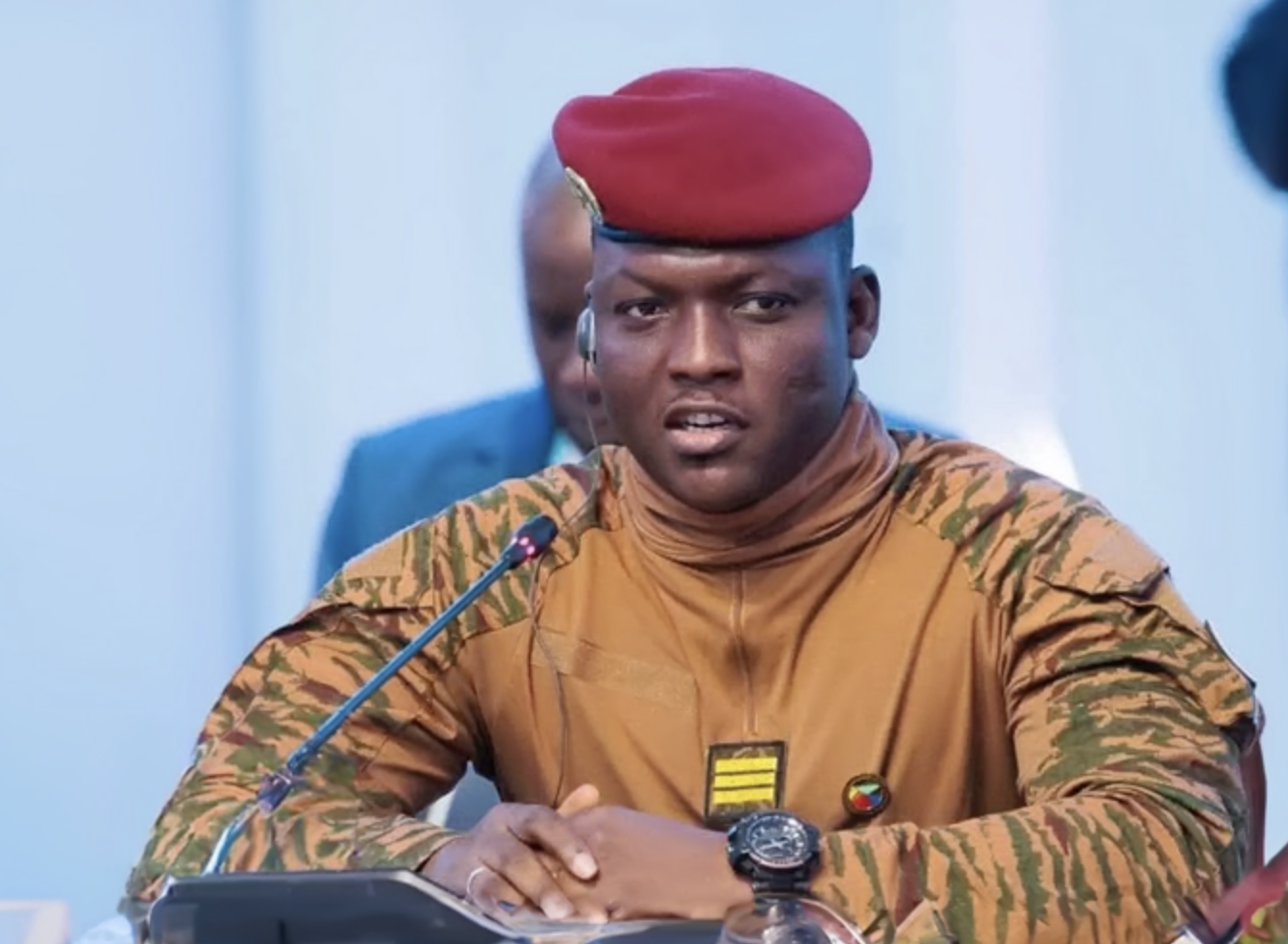
Profile: Captain Ibrahim Traoré – Interim President of Burkina Faso
Captain Ibrahim Traoré, born on 14 March 1988 in Kéra, Bondokuy, Mouhoun Province, Burkina Faso, is a dynamic and visionary leader who has risen to prominence as the Interim President of Burkina Faso. At just 36 years old, he is one of the youngest serving heads of state in the world, known for his strategic leadership, commitment to national security, and dedication to the socio-economic development of his nation. His journey from a military officer to the highest office in the land is a testament to his resilience, courage, and unwavering belief in the potential of Burkina Faso.
Early Life and Education
Ibrahim Traoré, affectionately nicknamed "IB," grew up in a modest family in Burkina Faso. He completed his primary education in Bondokuy and attended high school in Bobo-Dioulasso, where he was known for his quiet demeanor and academic excellence. Traoré pursued higher education at the University of Ouagadougou, graduating with honors in Geology. During his university years, he was an active member of the Association of Muslim Students and the Marxist Association nationale des étudiants du Burkina (ANEB), where he developed a reputation for defending his peers and advocating for justice.
Military Career
Traoré joined the Burkina Faso Army in 2009, graduating from the prestigious Georges-Namoano Military Academy. His military career has been marked by bravery and dedication. He received anti-aircraft training in Morocco and served in northern Burkina Faso, where he participated in counter-insurgency operations against jihadist groups. As part of the United Nations peacekeeping mission in Mali (MINUSMA), Traoré was commended for his courage during rebel attacks in the Tombouctou Region in 2018. Promoted to Captain in 2020, he became a vocal advocate for better conditions for soldiers on the frontlines, expressing disillusionment with the corruption and inefficiency of the political leadership at the time.
Rise to Power
Captain Traoré played a pivotal role in the January 2022 coup that brought the Patriotic Movement for Safeguard and Restoration (MPSR) to power. Dissatisfied with the inability of interim leader Paul-Henri Sandaogo Damiba to address the jihadist insurgency, Traoré led the September 2022 coup, ousting Damiba and assuming the role of Interim President on 6 October 2022. At 34, he became the youngest head of state in the world, earning both national and international attention.
Presidency and Leadership
As Interim President, Traoré has prioritized national security, declaring a "general mobilisation" in April 2023 to strengthen the military's efforts against jihadist insurgents. He has pledged to reclaim all rebel-held territories and refused negotiations until the security situation improves. His leadership style is characterized by discipline, strategic thinking, and a focus on self-reliance, influenced by his Marxist and pan-Africanist beliefs.
Traoré has also initiated significant economic reforms, particularly in the gold mining sector. In November 2023, his government approved the construction of Burkina Faso's first gold refinery, a landmark project aimed at boosting the economy and creating thousands of jobs. Additionally, he suspended export permits for small-scale gold production in February 2024 to combat illicit trade and formalize the sector.
In foreign policy, Traoré has shifted Burkina Faso's alliances away from France, expelling French military forces in February 2023 and forging closer ties with Russia and Turkey. He has expressed support for a federation with Mali and Guinea, envisioning a stronger, united Sahel region. Despite allegations of collaboration with the Wagner Group, Traoré has denied these claims, emphasizing the role of Burkina Faso's own forces in combating insurgency.
Challenges and Resilience
Traoré's presidency has not been without challenges. In September 2023, he faced an attempted coup, which he successfully thwarted, further consolidating his power. Through national consultations held in May 2024, his mandate was extended, allowing him to continue leading the transition and contest future elections. *Legacy and Vision
Captain Ibrahim Traoré is often compared to Thomas Sankara, Burkina Faso's revolutionary leader, for his commitment to self-reliance, anti-imperialism, and pan-Africanism. Like Sankara, Traoré seeks to transform Burkina Faso into a nation that prioritizes its people's well-being and sovereignty. His leadership represents a new chapter for Burkina Faso, one defined by resilience, innovation, and a bold vision for the future. Personal Interests**
Traoré is deeply committed to national security, economic self-sufficiency, and regional cooperation. His interests reflect his dedication to building a stronger, more prosperous Burkina Faso, free from external dependency and internal strife.
Conclusion
Captain Ibrahim Traoré is a leader who embodies the spirit of Burkina Faso – resilient, determined, and forward-looking. His journey from a military officer to the presidency is a story of courage and vision, inspiring not only his nation but also the broader African continent. As he continues to navigate the challenges of leadership, Traoré remains steadfast in his mission to secure a brighter future for Burkina Faso and its people.
References:** Available upon request.

